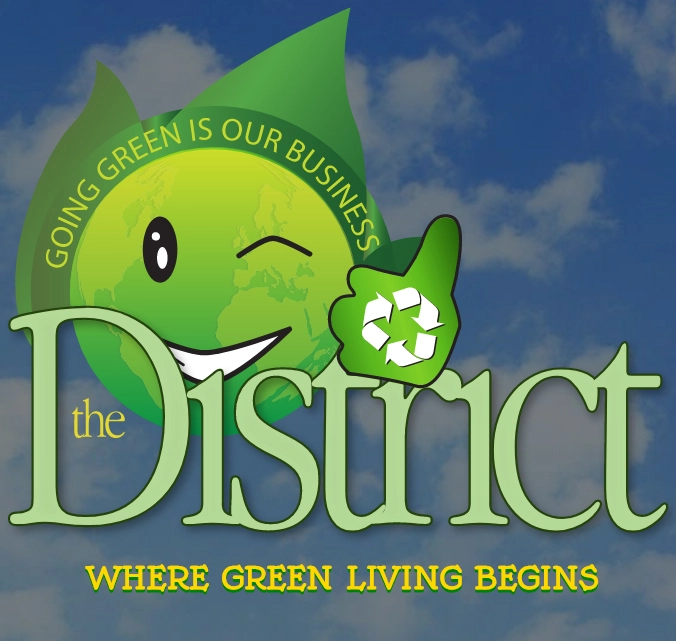
The District serves south central Indiana as the leader in green business initiatives, education, and waste & recycling management.In 1990, Solid Waste Management Districts were formed by HB 1240 as a separate local governmental entity to manage solid waste in Indiana. The mission of the Monroe County Solid Waste Management District (District) is to secure a healthier environment in south-central Indiana, by eliminating waste going to final disposal through reduction of source materials, reuse of reusable materials, and recovery of recyclable materials and by offering educational resources and programs; and by promoting sustainable materials practices throughout our communities. The District achieves this mission by working with all MonroeCounty residents, businesses, and community organizations.
The Hazardous Materials facility is your place for recycling, reuse, and proper disposal of your hazardous materials. Electronics, Freon appliances, household materials including pharmaceuticals, medical aids, paints, cleaners, and other common substances are hazardous waste that can pollute our soil, water, and air.
South Walnut accepts most of the materials collected at the Rural Recycling Centers, but also provides additional recycling options.Accepted items: Aluminum and steel cans, clean scrap metal, white paper, mixed paper, wrapping paper, junk mail, magazines and catalogs, paper sacks, phone books, newspaper, cardboard/paperboard, plastics (#1-7), clear, brown, blue, and green glass bottles and jars, clean plastic sacks, shredded paper, CDs, DVDs, hard plastic cases of: CDs, DVDs and audio cassettes, books (paperback & hardcover), and styrofoam packing peanuts (boxed or bagged). Styrofoam (if #6).
Non-Accepted items: No block styrofoam (except for #6), tires.
Scrap Metal
Scrap metal must be fully drained of fluids and not attached to other materials (i.e. auto parts, gutters, signs, bike frames). Accepted items include steel, iron & aluminum scrap, dishwashers, dryers, stoves, microwaves, grills(no tanks), tire rims(no tires), building materials, carpet/flooring. Please do NOT include Freon appliances.
Hazardous Waste
Accepted items: Freon appliances, paint, gasoline, batteries, fertilizers, cleaners, pesticides, herbicides, oil, antifreeze, pool chemicals, medications, fluorescent lamps and much more. Drop-off services are free for households only; businesses must pay a fee. Be careful when handling hazardous wastes.
Freon Appliance Recycling
Freon appliance recycling is available for items such as refrigerators, freezers, air conditioners, and dehumidifiers. Bring your appliance to the Hazardous Materials Facility at 3400 South Walnut Street. The appliances are then picked up by a company who safely recovers the Freon and recycles the unit. When Freon containing appliances are disposed of properly, it keeps our environment healthy by keeping chemical contaminants out of our air, soil, and water. There is a $20 fee for recycling freon.
ELECTRONICS RECYCLING
Technology changes almost every day, leaving you with obsolete electronics. Most electronics contain hazardous components and require proper disposal. The Distrct offers electronics recycling every week at all Recycling Centers for most electronics items.We accept any item that requires an electrical cord or a battery to operate.Electronics are accepted at ALL District Recycling Centers. Items with a screen are accepted at the South Walnut Recycling Center for a $20 fee.
Re-refined oil decreases our dependency on foreign oil.
Recycling used motor oil decreases our dependency on natural resources and conserves energy. Three times more energy is used to process crude oil than to re-refine used oil. By recycling, the U.S. can save thousands of barrels of oil per day. It takes just one gallon of used oil, compared with 42 gallons of crude oil, to produce the same 2.5 quarts of lubricating oil. As for quality, today's re-refined oil products meet or exceed the same stringent performance standards that apply to virgin oil products.
Recycling oil filters saves resources & energy
Americans change over 400 million oil filters a year! These filters contain a high steel content and additional motor oil, both easily recycled. If all of the oil filters manufactured in 1994 had been recycled, an estimated 161,500 tons of steel could have been recovered and 17.8 million gallons of used oil would have been kept out of our fields and waterways.Unfortunately, most used oil filters are not recycled, so the oil they contain is released into the environment. Currently, 90% of do-it-yourselfers throw their filters in the trash, sending about 10 million gallons of used oil to landfills every year.
Recovering antifreeze is easy & economical
U.S. cars generate over 60 million gallons of used antifreeze each year. Most antifreeze contains the poisonous chemical ethylene glycol. Like motor oil, used antifreeze also collects hazardous contaminants from the engine during use. Antifreeze has a sweet taste which attracts children and pets. It may cause injury or death through ingestion, inhalation or skin absorption. In the past, disposal of used ethylene glycol has included treating it as a hazardous waste, discharging it into municipal sewer systems, or illegally pouring it into dry wells and storm drains. These methods of disposal are no longer necessary because now antifreeze can be recycled easily and inexpensively.
| No | Material Name |
|---|---|
| Glass | |
| 1 | jam jars |
| 2 | CRV Glass bottles |
| Metal | |
| 3 | Aluminum |
| 4 | Copper |
| Paper | |
| 5 | News Paper |
| 6 | Cardboard |
| 7 | Magazines |
| 8 | Office Paper |
| Plastic | |
| 9 | #1 & # 2 Plastic |
| 10 | Mixed plastic bottles |
| 3400 South Walnut St Bloomington, Indiana United States ZIP: 47401 |
| 812.332.6556 812.331.4511 angela@carminparker.com |